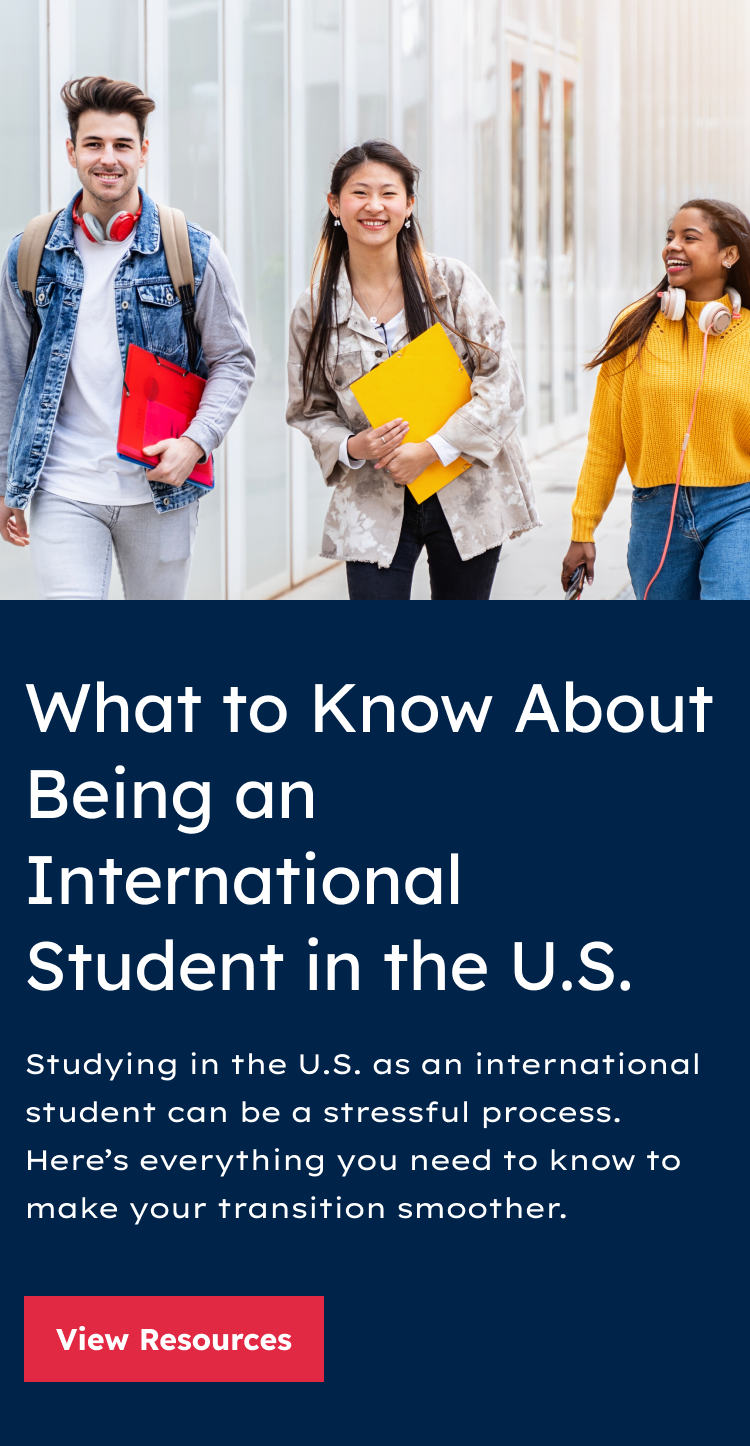What Are Transition Pathway Programs?
- Transition pathway programs aim to close learning gaps for incoming college students.
- They focus on math and English for high schoolers and English for international students.
- Transition pathway programs come in a few different forms.
- Programs generally last a year. They can be offered in person or online.
Navigating a smooth transition to college can be challenging for many students. With academics, new living arrangements, and increased responsibilities, many first-year students experience difficulties adapting to college life.
This can be especially true for students who do not have the academic readiness for college-level courses.
According to a National Center for Educational Statistics report, 40% of students entering four-year universities and almost two-thirds of students starting at community colleges were required to take remedial education courses.
Remedial courses allow students to build up their skills in subjects like English and math before they can begin college-level courses. For many students, transition pathway programs can help close skills gaps.
What Are the Different Types of Transition Pathway Programs?
Transition pathway programs come in a few different forms. There are programs available for high school students, through community colleges, and for international students.
Typically, transition pathway programs are geared toward those seeking two-year and four-year degrees. However, international students may also take part in transition pathway programs for graduate degree programs.
For high school students, transition pathway programs exist to assist students preparing for their first year of college. They tackle prerequisite math and English skills. Program participants are usually identified by their standardized test scores. They enroll in specific transitional high school courses.
Some community colleges may collaborate with high schools to offer these programs. Or, community colleges may offer their own transition pathway programs. Like high school programs, community college programs focus on remedial math and English skills necessary for college-level courses.
Universities may offer transition pathway programs for international students who would like to study at an American college. However, they may not possess the English language skills necessary to be successful on standardized tests or in classes. These programs usually direct instruction toward closing language barriers, rather than academic skills.
General Programs
Some high schools and community colleges now offer transition pathway programs that allow students to take yearlong courses in math and English. These programs prepare students to take college-level courses upon graduation from high school.
Having adequate test scores can help a student get into college and can save them money in the long run.
Students are typically identified through their junior year standardized test scores. They then take transition pathway program courses during their senior year. Depending on the student, these courses could replace other math and English classes. Or, they can be taken in addition to those classes.
Ideally, these programs are individualized for each student and provide instruction to address each student’s specific skill gaps. Students, for example, would not have to be enrolled in both English and math courses unless their test scores indicate a need for both.
Programs for International Students
Many colleges have a high number of international students. Transition pathway programs are available for international students who worry about having proficient English language skills. These programs allow students to study at universities in the United States while taking English language classes.
International students enrolled in transition pathway programs usually receive contingent acceptance to the affiliated university. After about a year of taking English language learning courses, students who demonstrate English proficiency are then formally accepted into the institution.
Online vs. In-Person Programs
A number of transition pathway programs are available online through some colleges. Like in-person programs, online options are generally a yearlong commitment.
There are many pros and cons to attending an online transition pathway program. A pro may be the flexibility the online program may offer. A con could be that your style of learning is not best met through online learning.
You should always research quality online programs and compare them to in-person options before making a decision.
What Are the Benefits of a Transition Pathway Program?
For high schoolers, the best transition pathway programs are created through collaboration between high school and postsecondary educators.
Classes focus on the specific skills and content first-year college students will need in order to avoid remedial courses. Classes may also move at a quicker pace or structure learning to model a college-level course. This can help students have a better understanding of what to expect in college.
Along with helping students fill in learning gaps in English and math so that they are academically prepared for college-level courses, some transition pathway programs may also work to foster independent living skills. Life skills curricula can help first-year students successfully transition in areas outside of academics.
Is a Transition Pathway Program Right for Me?
Many high schools use test scores to determine who will be placed in their transition pathway programs. A transition pathway program may be right for you if your scores fall near or below the scores needed to test out of remedial math and English courses.
If you would like to pursue a two-year or four-year degree program, but are concerned about your foundational skills, exploring transition pathway programs could be beneficial for you.
If you are an international student and do not have the English language skills to confidently complete college-level courses taught in English, you may benefit from a transition pathway program to reach your full academic potential.

Frequently Asked Questions About Transition Pathway Programs
How long are transition pathway programs?
Transition pathway programs for high school students and international students alike generally last a year. High school students in a traditional transition pathway program will complete the program during their last academic year of high school.
International students typically will complete pathway programs during their final year of high school or in a gap year before college. Programs are designed to be the full academic year, although students may only enroll for a semester.
How much do transition pathway programs cost?
Traditional transition pathway programs are available for students in their final year of high school. Because transition pathway programs are offered by high schools as high school credit classes, the programs are free for enrolled students.
Transition pathway programs for international students can come with fees. You would need to check with each individual school to see if these programs are offered at no cost or if there are fees. For example, an English language transition pathway program at North Carolina State University costs a little more than $5,000 per semester.
How do I find a transition pathway program near me?
Not every school offers a transition pathway program. If you are curious whether your school offers a transition pathway program, speak with your school counselor or another administrator. Most likely, if your school has a program and you qualify for it, you will be identified for the program.
If your school does not have an established transition pathway program, your school counselor may be able to direct you to another high school or local community college that offers the program.
Are there scholarships available for transition pathway programs?
If you are a student enrolled in a transition pathway program through your high school, you won’t need scholarships. The program should be free. They are not college courses.
However, international students who are enrolled in a transition pathway program do have fees and expenses. International students can find and apply for many scholarships available to students in an international transition pathway program.





